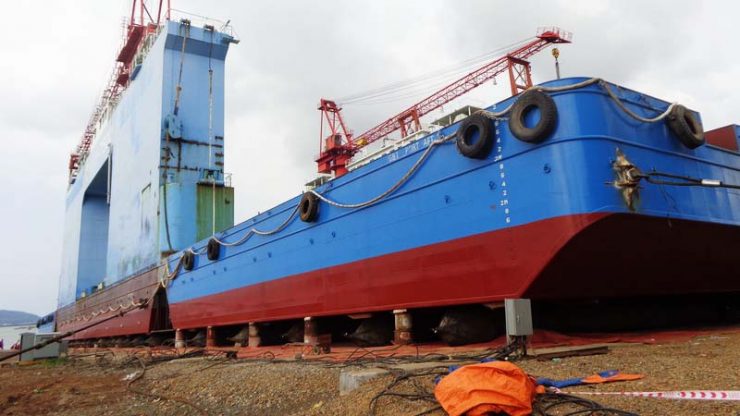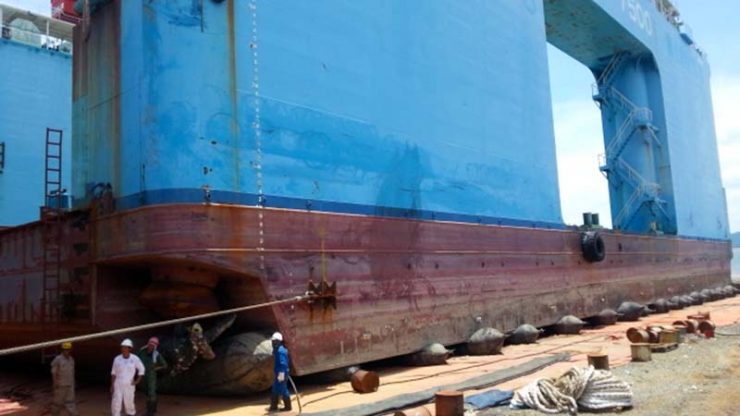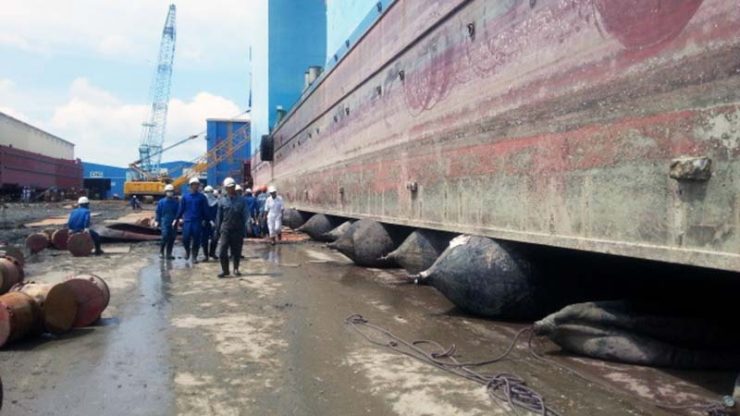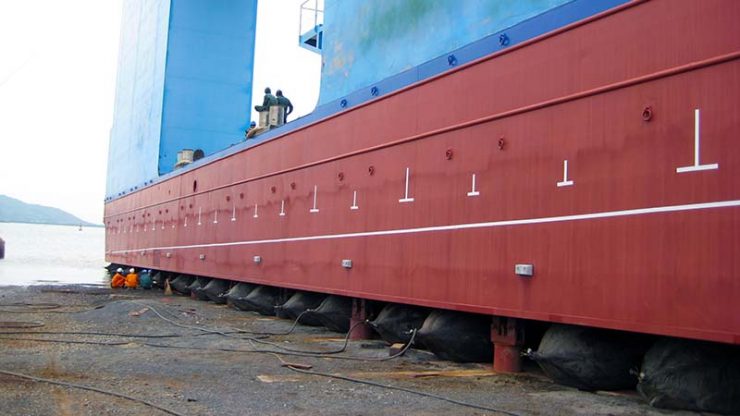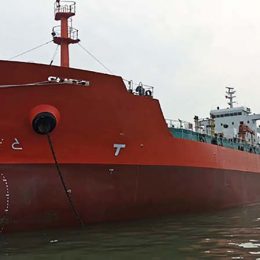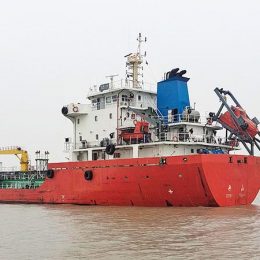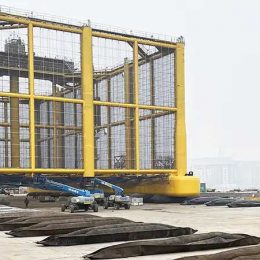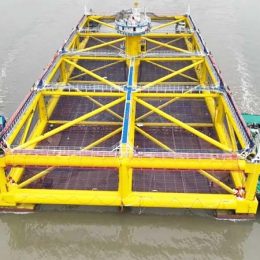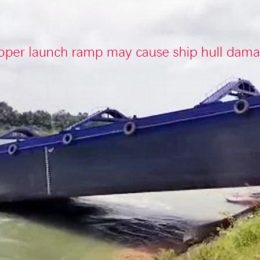
Shipyards operate floating dry docks for hauling or docking vessels. When one floating dry dock need maintenance and repair, how to do it? Find a bigger floating dry dock sometimes is not an easy job, but with the flaexible airbag dry docking system people can solve this problem smoothly.
Basic requirements of airbag dry docking system for floating dry docks
Ramp/slipway for dry docking
1. Slope angle should be in the scope of 1/100-1/20
2. Concrete or enhanced compacted natural ground with enough bearing capacity.
3. Water depth at slipway end should be higher than half of floating dock draft
Pulling system for dry docking
1. Low speed winch with enough pulling force is preferred
2. Crawler crane or bulldozer for pulling is acceptable
3. Mixed pulling power is acceptable
2. Winches should have Multi-brake methods
3. Multiple pulling points are suggested
Marine air bags for dry docking
1. Heavy duty marine airbags with 5 times safety coefficient are preferred
2. Deflated bags can sink in water
3. Airbag size and quantity should be calculated by professional
4. Airbags can be staggered to support wide floating dry dock
Assistant equipment for operation
1. Forklift and crane are required for winch installation and airbags moving on site
2. Minimum demands of air compressor, 2CBM/minute flow rate with 7 bar pressure
Procedure of dry dock a floating dry dock with marine airbags
One practical project may help to better understand how it is done.
Eversafe Marine hauled one 7000T floating dry dock onto land with 54 pieces heavy duty marine airbags in Vietnam shipyard once.
Floating dock: (W x L x H – 41m x 120 m x 16 m)
Light Weight: 7000 T
Slipway: Concrete with 1.72 degree
Tidal change: maximum 2.5 m
Summary procedure:
- Install pulling winches and connect the crawler cranes with floating dry dock.
- Have the floating dry dock bottom cleaned with divers
- Place six pieces deflated airbags on the slipway. Airbags are staggered to full support the dock in width.
- Pull the 41 m wide floating dry dock to mount onto slipway in high tide time.
- Inflate six airbags to lift the stern first in low tide.
- In the next coming high tide pull floating dry dock on to slipway further.
- Add more airbags underneath the dock.
- Step by step the floating dry dock is hauled onto slipway fully.
- Place supporting blocks between marine airbags.
- Deflate airbags, rest the floating dock on keel blocks.
After mainetance and repair, the floating dry dock can be launched into sea with marine airbags again.
Remarks
Airbag dry docking system is a flexible floating dry dock in someway: it is not limited by the demension of vessels, it can be moved to anywhere. It has less demands of water level and infrastructures also.
Airbag dry docking system is a little complicated in operation compared with floating dry dock for ship docking. It needs lots of manual operations, depends much on good calculation and planning.
